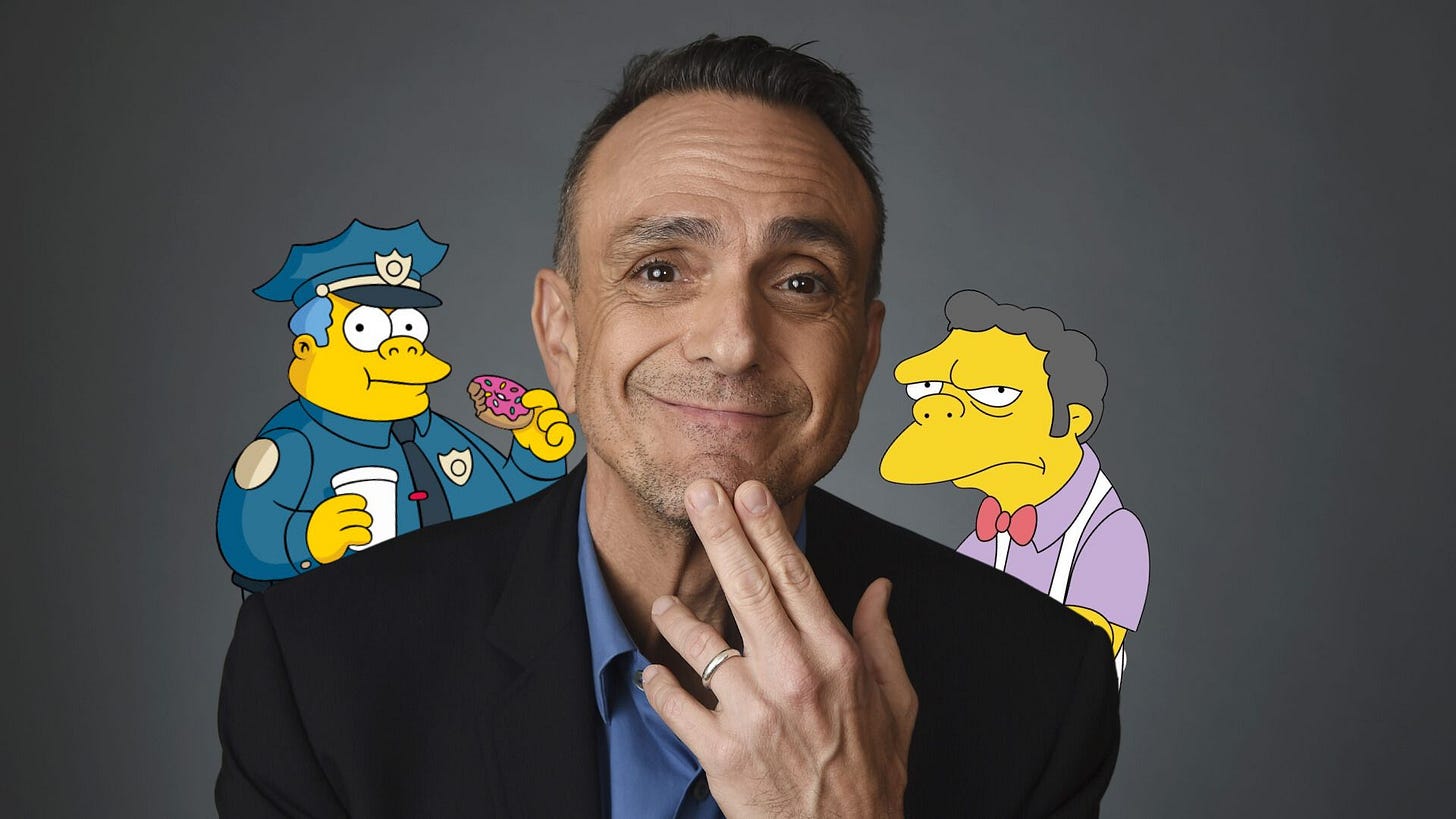Hank Azaria Fears AI Will Steal His Voice—But Could It Actually Save It?
The Simpsons voices have changed. Darth Vader lives on. Rick & Morty fell apart. AI isn’t going away—so is it a threat to voice acting, or the key to preserving it forever?
Hank Azaria has a point. AI is creeping into every corner of entertainment, and voice acting is no exception. The idea that a computer could take over the voices of Moe Szyslak, Chief Wiggum, or Comic Book Guy is unsettling—not just because it threatens jobs, but because it feels like a shortcut. Azaria, like most great voice actors, doesn’t just speak—he performs. There’s a soul, a rhythm, a lived-in quality to these characters that makes them real, and AI, no matter how advanced, is missing something fundamental: the human spark.
Azaria recently wrote an op-ed for The New York Times, laying out exactly why AI taking over voice acting isn’t just a technological shift—it’s an artistic loss. He talked about how much physicality goes into the performances, how voice actors don’t just read lines but embody the characters with movement, emotion, even props. He mentioned watching veteran actors like Dan Castellaneta (Homer Simpson) and Harry Shearer (Mr. Burns) throwing themselves into their performances, sweating over microphones, using their entire bodies to get the delivery just right. AI? It can replicate a sound. But can it replicate that?
But here’s the thing—fans have been complaining about how The Simpsons voices have changed for years. Homer doesn’t sound the same. Mr. Burns used to be sharper, more menacing. Bart? Still voiced by Nancy Cartwright, but let’s be real, it’s getting harder to believe he’s a 10-year-old boy. This is just what happens when a show runs for over three decades. Voices change. Actors age. If AI had been used to keep the voices consistent over the years, would anyone have really noticed? Would fans have cared? Or would they have actually preferred it?
Look at The Mandalorian. When Luke Skywalker showed up in the Season 2 finale, he didn’t just look like 1983 Mark Hamill—he sounded like him, too. That wasn’t Hamill recording new lines; it was AI, reconstructing his younger voice from old audio. And guess what? Fans didn’t revolt. They accepted it because it felt like Luke. The same thing happened with James Earl Jones and Darth Vader. The man was Vader—there’s no replacing that voice. But as he got older, his deep, commanding tone lost some of its power. So Lucasfilm made a deal. They used AI to preserve his voice, ensuring that Vader would always sound like Vader. Jones signed off on it, giving his blessing to the technology. And sadly, in 2024, he passed away. But his voice—his performance—lives on. That’s not just replacement—that’s preservation.
Now, contrast that with what happened to Rick and Morty. When Adult Swim cut ties with Justin Roiland, they recast both of his main roles instead of using AI to maintain consistency. And let’s be honest—the reaction was not great. The new voices were close, but not quite right, and fans weren’t shy about saying so. It’s proof that audiences do care about continuity, even if they don’t always realize it. Imagine if AI had been used to refine the new performances, just enough to make the transition seamless. Would people have even noticed?
This is where AI can be a tool rather than a threat. It doesn’t have to replace actors—it can enhance them. Tools like ElevenLabs allow for voice-to-voice AI, meaning actors still perform the roles, but AI tweaks the sound to keep the voices consistent. This means an actor like Azaria wouldn’t be erased—he’d still be delivering the lines, crafting the performance, making Moe sound like Moe. But instead of having his voice age over time, AI would help keep it locked in, preserving the character exactly as audiences remember it.
Hank Azaria is right to be worried. If studios see AI as a way to replace actors entirely, that’s a problem. But what if it’s used to preserve performances, ensuring that beloved characters never lose their spark? That’s not dystopian—that’s a way to respect both the art and the artist. Because at the end of the day, audiences don’t want to hear an aging, inconsistent Moe Szyslak. They just want Moe. And if AI can help keep Moe sounding like himself for another 30 years? Maybe that’s not such a bad thing.





